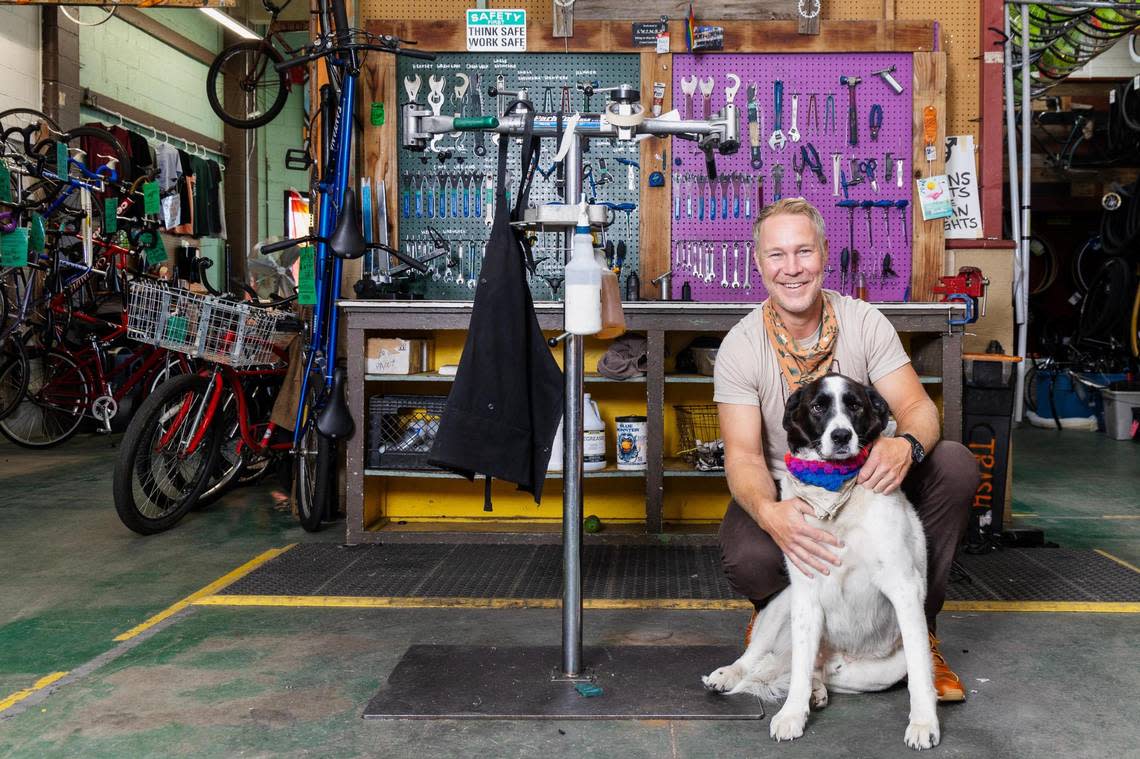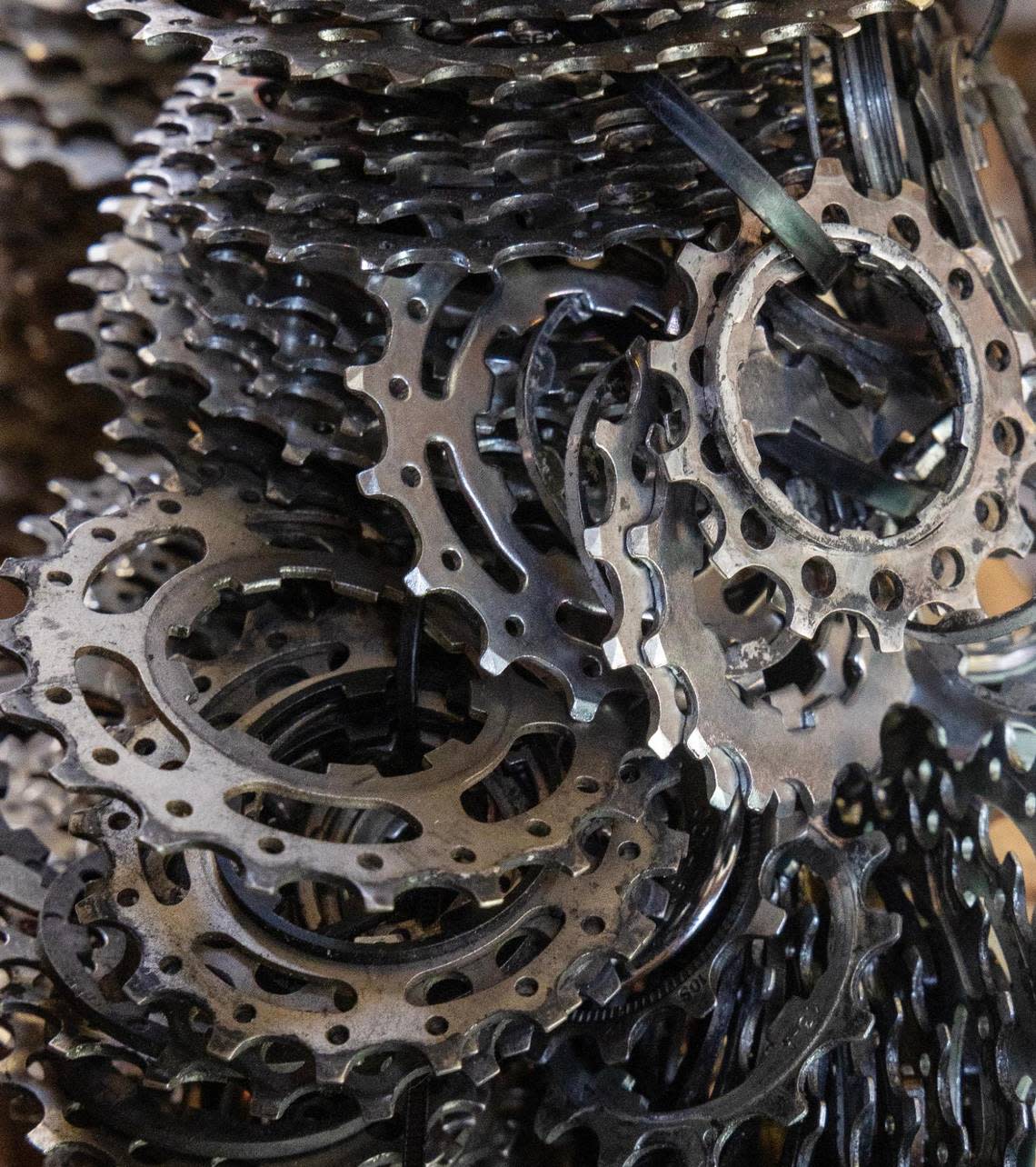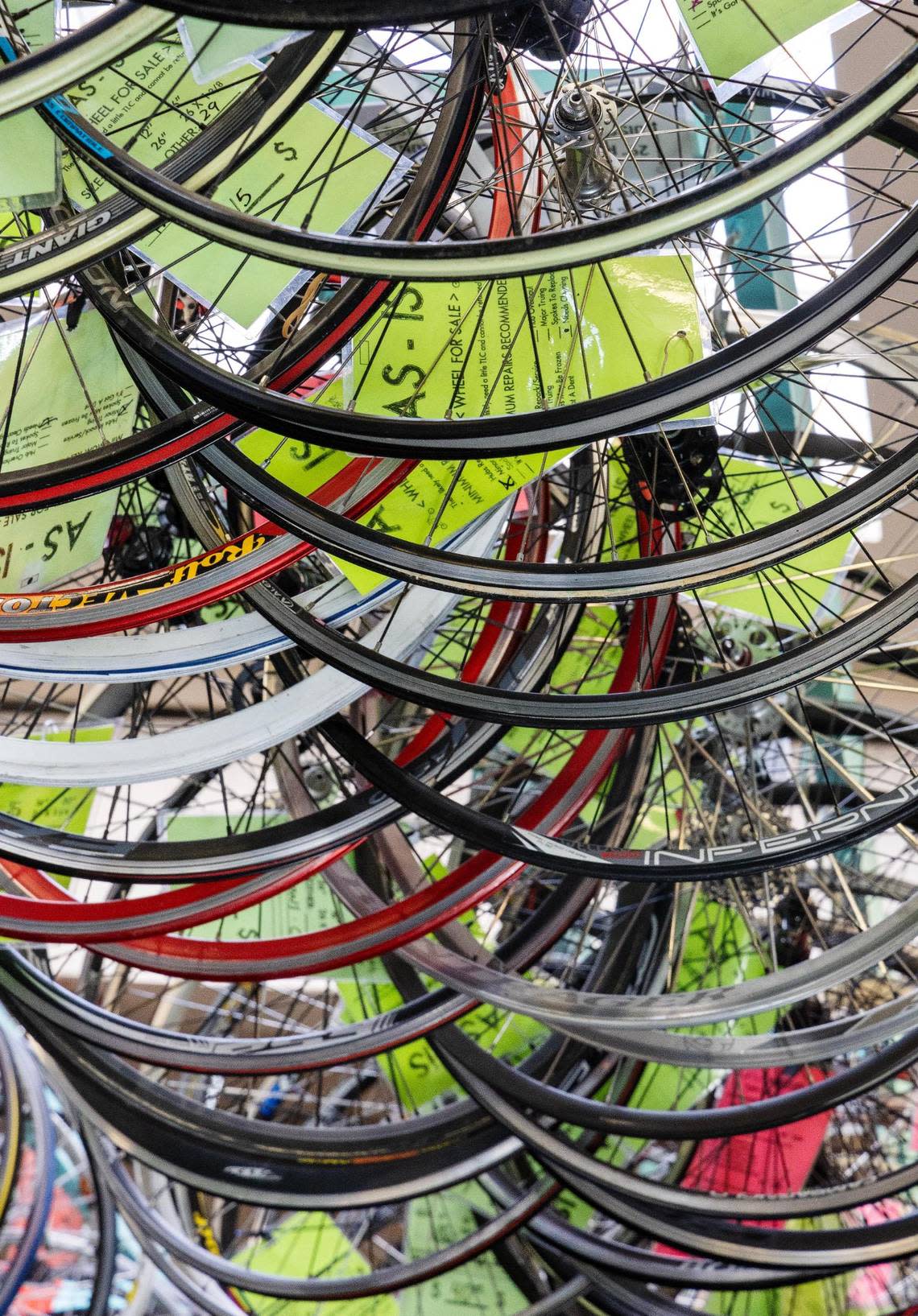Boise Bicycle Project director has the ‘best job in the entire world.’ Why he’s leaving
In the late aughts, a wildland firefighter in his 20s spent the off-season working out of a former homeless shelter on Front Street. The building had no heat, no running water, and no air conditioning. But a developer with no use for the vacant building offered it up.
From the outside, it looked like an abandoned building. But inside was a space full of bicycles, tools and the volunteers to work on them. It was the start of a nonprofit, what founder Jimmy Hallyburton and his partner called the Boise Bicycle Project.
Sixteen years later, Hallyburton is retiring from his executive director position in September.
“It’s the best job in the entire world,” he said. “And I think the reason why I’m leaving is that I want that to continue without me forever.”
The bicycle nonprofit founded by two firefighters has provided more than 23,000 bikes to local residents, half of them as donations to kids. The Boise Bicycle Project has partnered with refugee groups, incarcerated Idahoans and homeless people to get two-wheeled locomotion into the hands of low-income residents, all the while pushing to make Boise the bicycle capital of America.
Hallyburton said he wants to leave the Bicycle Project when it is in a healthy financial and organizational state, and that he isn’t sure what will come next for him. He’s also a Boise City Council member running for reelection in November and would be the most senior council member if he wins.
“I started this place when I was 25 years old,” he said. “I’m 40 years old now. … I’m excited to see what’s next for me too, and I really, truly do not know what that is.”
Hallyburton said he wants to spend some time thinking about his future plans.
“I’ve been running pretty hard now for 16 years and doing two jobs for the last four years, and the idea of having some intentional time to really think about what ‘next’ might be is pretty exciting to me,” he said. “And so I’m holding that pretty sacred.”

Founders confront barriers to biking costs
Hallyburton founded the group with Brian Anderson, who is now a U.S. Forest Service ranger in Oregon. While fighting a fire in Sun Valley in the summer of 2007, the two discussed what they had observed while working at bike shops.
Over and over, the two men noticed clients entering a bike shop and being told the fixes to their bikes would cost more than what the bike was worth. Other times, families would be unable to afford the cost of a bike for their children.
“We really wanted to kind of flip that script a little bit and create a place where people could walk in the door,” Hallyburton said, “and no matter what their income level was, we were going to have a way to serve them and to get them rolling down the road.”
It started at a studio apartment behind the Rite Aid on State Street. Then it moved to a former homeless shelter on Front Street, after a local developer, Clay Carley, let the group use an unoccupied building he owned that sat vacant during the financial crisis, Hallyburton said. He recalled the space as a sort of sanctuary, where “the raddest people in the world” would get their hands dirty, fixing bikes, “in this sort of punk rock way” to help the community.
Today, at its location at 1027 S. Lusk St., the Boise Bicycle Project owns its own building south of the Boise River and has a number of programs. When it’s open Wednesday through Sunday, locals can browse refurbished bikes with price tags that are much lower than those at new bicycle shops. They can also bring in a bike they already own and pay a few dollars for space on a shop stand, where they’ll be paired with a mechanic who will walk them through how to work on the bike. They can also bring in a bike or parts they’re not using and donate it.
“It costs so much to get your bicycle fixed at a bike shop, because it really does take a lot of tools, a lot of expertise,” Hallyburton said. “We can make it more affordable if people are actually doing the work on their bike themselves.”
Can Boise become the bicycle capital of the U.S.?
The city, meanwhile, has been confronting its own challenges to make the roads more accessible to bikes.
Hallyburton said Boise still has a ways to go before it could be called the bicycle capital of the U.S., pointing to a need to build more safe pathways for riders — along canals or railroad tracks — to allow more people to feel safe getting on two wheels. The city has a Master Pathways Plan to add 112 miles of such routes.
If all of those were to get built, “Boise would be the bicycle capital of America; we would have the best off-street bicycle network in the entire country,” he said. “That’s that tipping point that I’m talking about, and if we got it there, the rest of the cards would fall pretty quick.”

The nonprofit started with one employee — Hallyburton — and now has 22. It also runs Mobile Fix-It days, when they show up in neighborhoods to fix bikes for free.
“It’s really been life-transforming for me to get to understand so many different people from different backgrounds, and the value that they still bring to the community and the strengths that they have,” Hallyburton said. “They’ve made BBP stronger, they have the ability to make this whole city stronger. If we can help knock down a few obstacles or give them some tools to overcome them, there’s no telling what Boise could become.”

